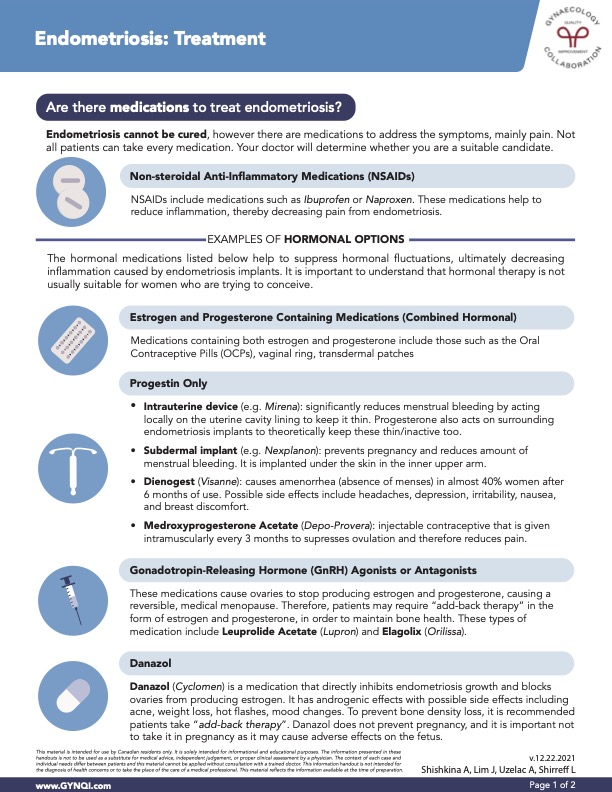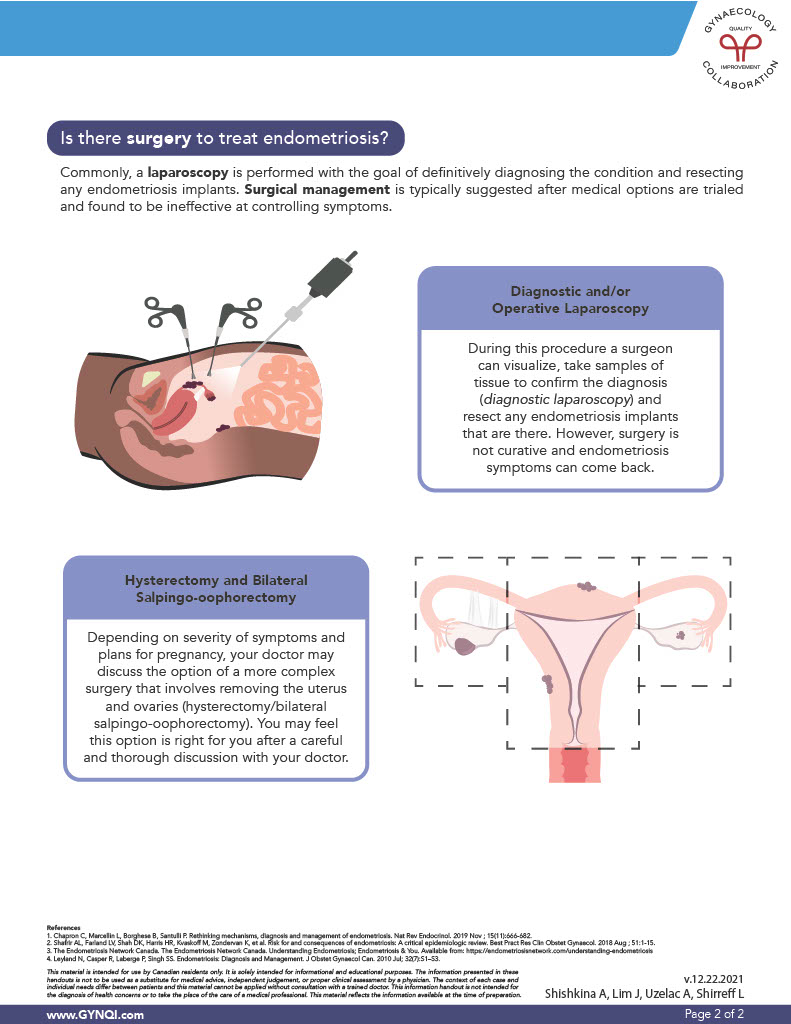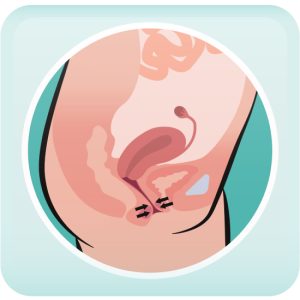

Table of Contents
- Summary
- Are There Medications to Treat Endometriosis?
- Non-Steroidal Anti-Inflammatory Medications (NSAIDs)
- Hormonal Treatment Options
- Combined Hormonal Medications: Estrogen and Progesterone
- Progestin-Only Treatments
- Gonadotropin-Releasing Hormone (GnRH) Agonists or Antagonists
- Danazol
- Is There Surgery to Treat Endometriosis?
- Diagnostic and Operative Laparoscopy
- Hysterectomy and Bilateral Salpingo-Oophorectomy
- Understanding Your Endometriosis Treatment Options
Summary:
- Endometriosis is a prevalent disorder where endometrial-like tissue grows outside the uterus, causing pain and complications.
- While there is no cure, various treatments, including NSAIDs, hormonal therapies, and surgical procedures, can effectively manage symptoms.
- Hormonal treatment options include combined hormonal medications containing estrogen and progesterone, progestin-only treatments that reduce endometrial tissue growth, and devices like the Mirena IUD.
- Depending on symptom severity and pregnancy plans, your doctor may recommend a complex surgery that involves removing the uterus and ovaries. This option should only be considered after a comprehensive discussion with your healthcare provider.
Endometriosis is a chronic condition affecting millions of women worldwide, characterized by the growth of endometrial-like tissue outside the uterus, leading to pain and various complications. Although there is currently no cure, a range of treatments is available to help manage symptoms and improve the quality of life. From over-the-counter pain relievers to hormonal therapies and surgical interventions, patients have several options to consider.
Understanding these treatments can empower individuals to work closely with their healthcare providers to develop a personalized approach that addresses their specific needs and circumstances.
Are There Medications to Treat Endometriosis?
Endometriosis has no cure, but several medications are available to help manage symptoms, especially pain. Not all treatments work for everyone, so your doctor will evaluate which options are best suited for you.
Non-Steroidal Anti-Inflammatory Medications (NSAIDs)
NSAIDs include medications such as Ibuprofen or Naproxen. These medications help to reduce inflammation, thereby decreasing pain from endometriosis.
Hormonal Treatment Options
Hormonal medications work to stabilize hormonal fluctuations, reducing inflammation from endometriosis implants. However, hormonal therapy is generally not recommended for women who are trying to conceive.
Combined Hormonal Medications: Estrogen and Progesterone
Medications containing both estrogen and progesterone include those such as the Oral Contraceptive Pills (OCPs), vaginal ring, and transdermal patches.
Progestin-Only Treatments
Progestin-only treatments offer a hormone-based option for managing endometriosis symptoms by targeting and reducing the growth of endometrial tissue.
- Intrauterine device (e.g. Mirena): Significantly reduces menstrual bleeding by locally thinning the uterine lining. The progesterone it releases may also help to keep nearby endometriosis implants thin and less active.
- Subdermal implant (e.g. Nexplanon): Prevents pregnancy and reduces the amount of menstrual bleeding. It is implanted under the skin in the inner upper arm.
- Dienogest (Visanne): Causes amenorrhea (absence of menses) in almost 40% of women after six months of use. Possible side effects include headaches, depression, irritability, nausea, and breast discomfort.
- Medroxyprogesterone Acetate (Depo-Provera): Injectable contraceptive that is administered intramuscularly every three months to suppress ovulation, helping to reduce pain associated with endometriosis.
Gonadotropin-Releasing Hormone (GnRH) Agonists or Antagonists
GnRH agonists or antagonists temporarily halt ovarian production of estrogen and progesterone, inducing a reversible, medically-managed menopause.
To support bone health during treatment, patients may need “add-back therapy” with estrogen and progesterone. Medications in this category include Leuprolide Acetate (Lupron) and Elagolix (Orilissa).
Danazol
Danazol (Cyclomen) is a medication that directly suppresses endometriosis growth and blocks estrogen production by the ovaries. With androgenic effects, potential side effects can include:
- Acne
- Weight changes
- Hot flashes
- Mood fluctuations
- Bone density loss
To prevent bone density loss, “add-back therapy” is recommended.
Danazol does not act as a contraceptive and should not be taken during pregnancy, as it may harm the fetus.
Is There Surgery to Treat Endometriosis?
Laparoscopy is often performed to confirm an endometriosis diagnosis and remove any detected implants. Surgical treatment is usually considered when medical options have been tried and proven ineffective for symptom relief.
Diagnostic and Operative Laparoscopy
During this procedure, a surgeon can visualize the abdominal cavity, obtain tissue samples for diagnosis (diagnostic laparoscopy), and remove any endometriosis implants present. However, it’s important to note that surgery is not a cure, and endometriosis symptoms may return.
Hysterectomy and Bilateral Salpingo-Oophorectomy
Based on the severity of your symptoms and your plans for pregnancy, your doctor may discuss the possibility of more complex surgery, such as a hysterectomy with bilateral salpingo-oophorectomy (removal of the uterus and ovaries).
This option may be appropriate for you after a thorough discussion with your doctor.
Understanding Your Endometriosis Treatment Options
While there is no cure for endometriosis, various medications and surgical options can effectively manage symptoms and improve quality of life. Treatments such as NSAIDs, hormonal therapies, and GnRH agonists can alleviate pain and reduce endometrial growth, while surgical options like laparoscopy and hysterectomy may be considered when medical therapies are ineffective.
Speak with your healthcare provider to determine the most appropriate treatment plan for your individual needs.



